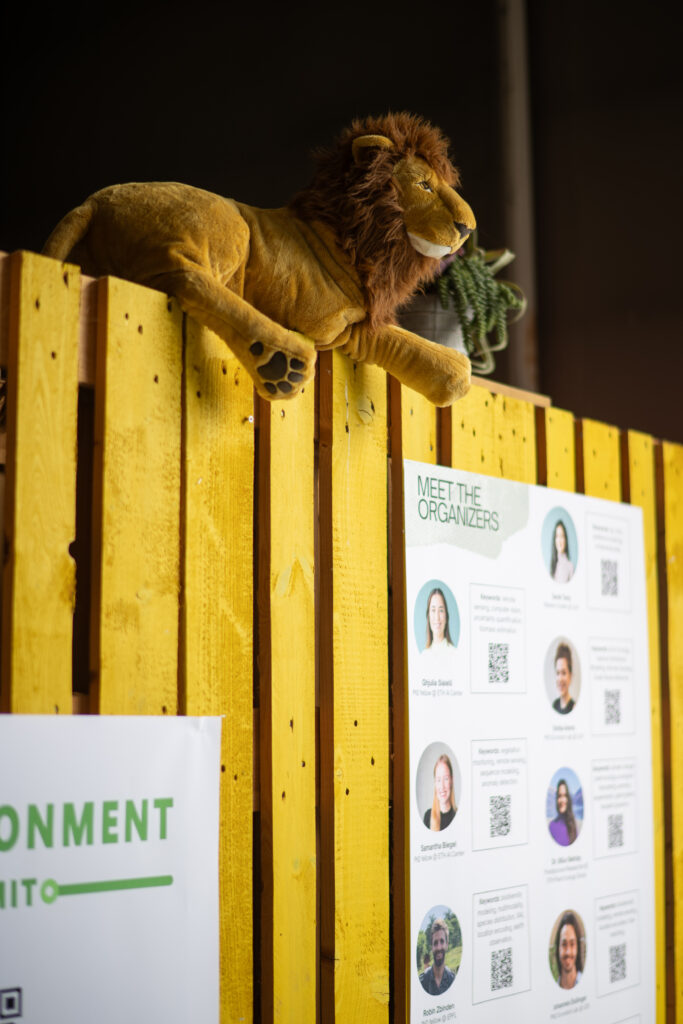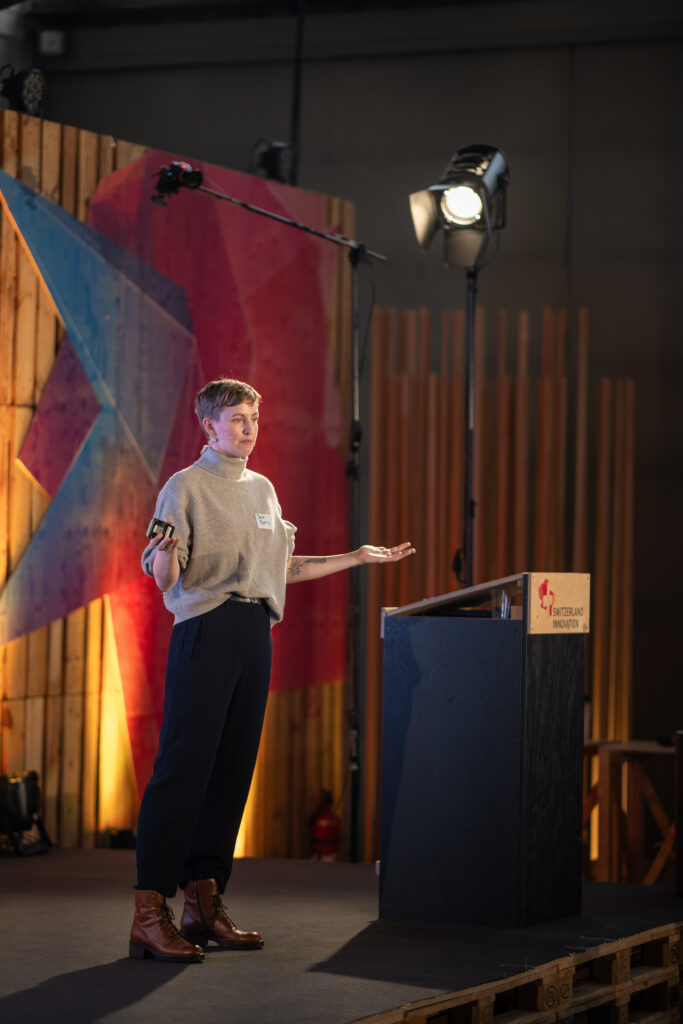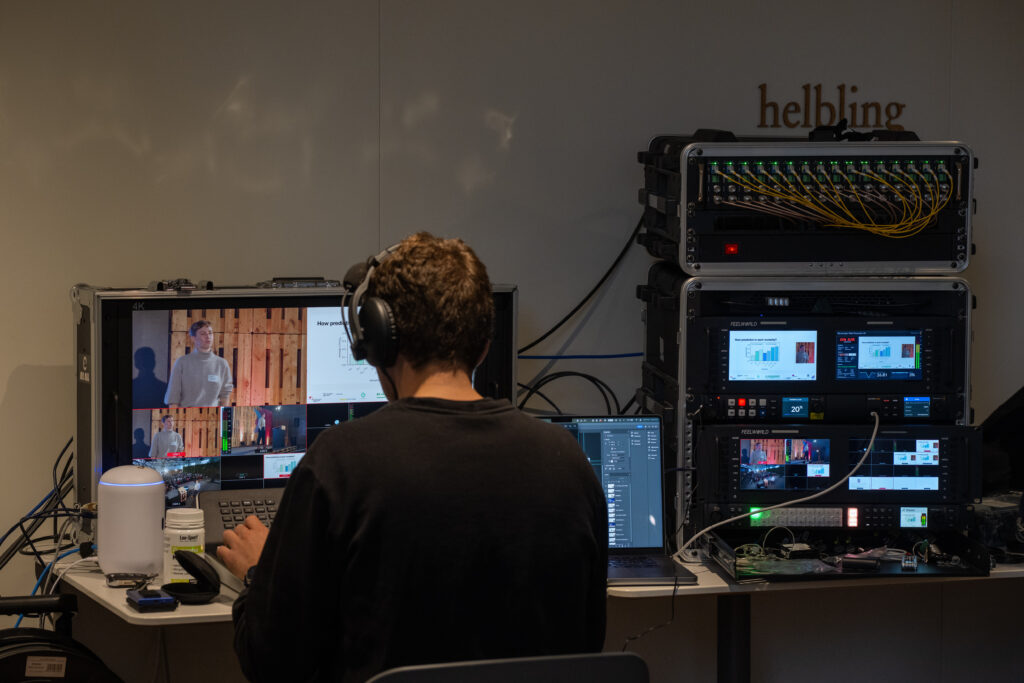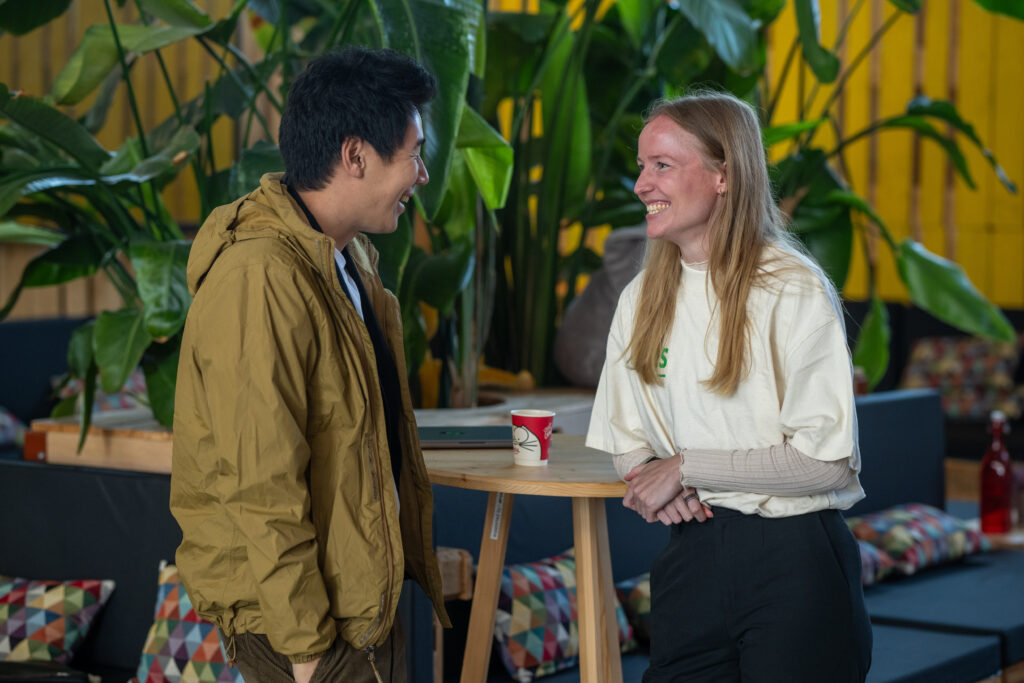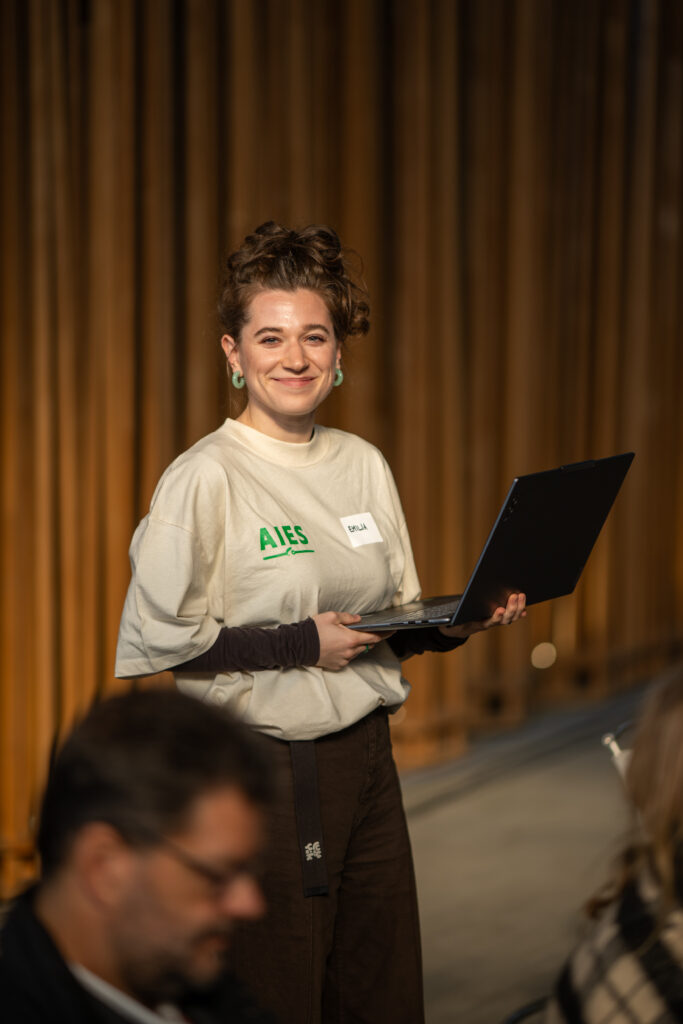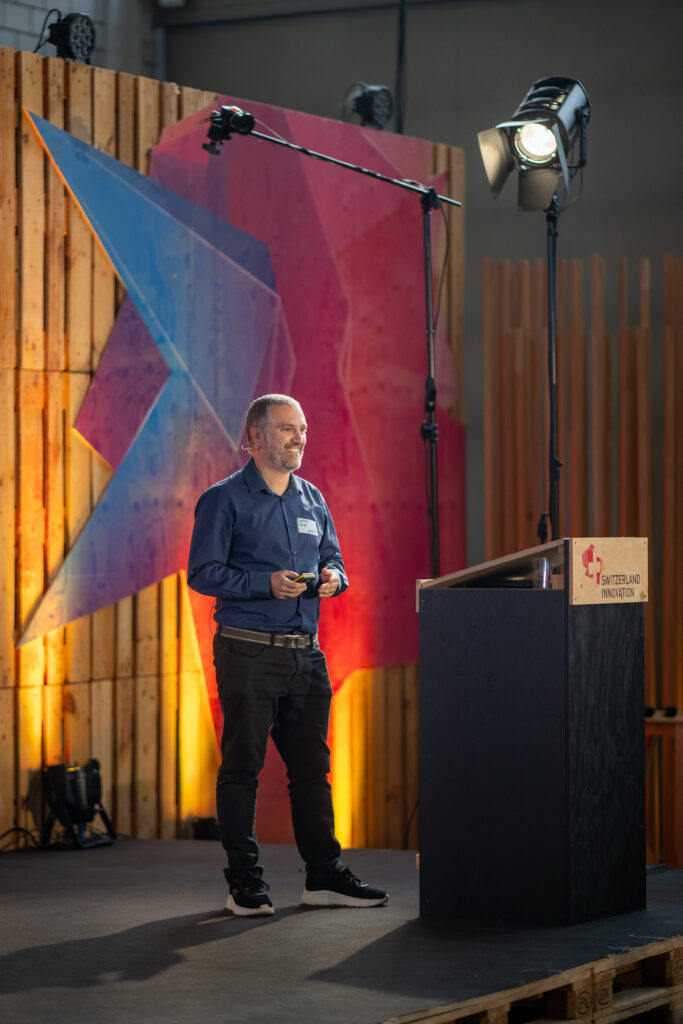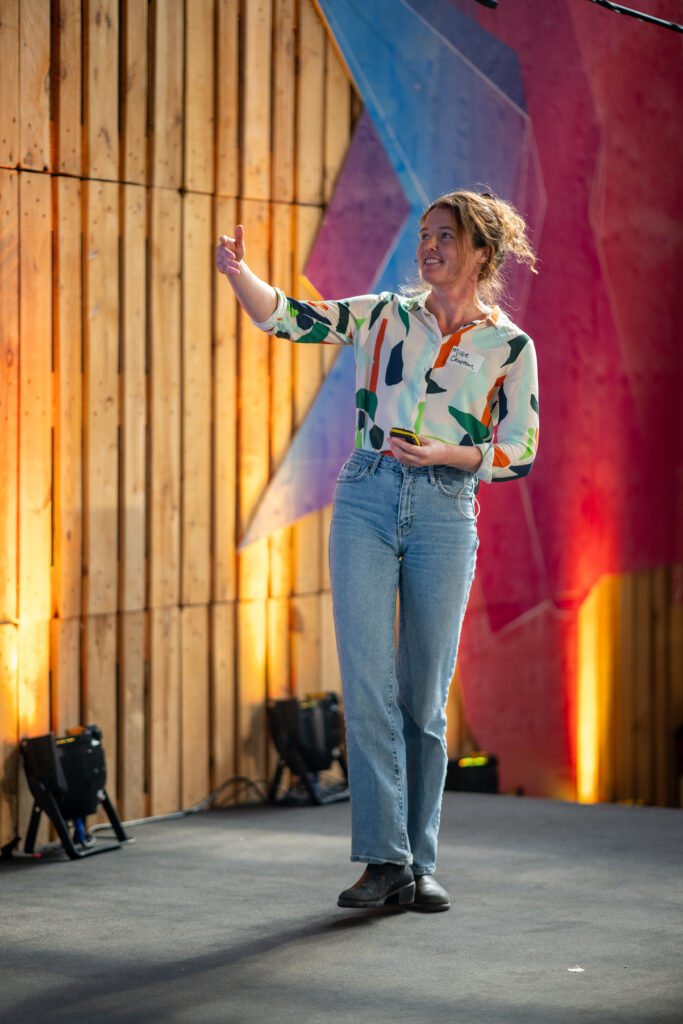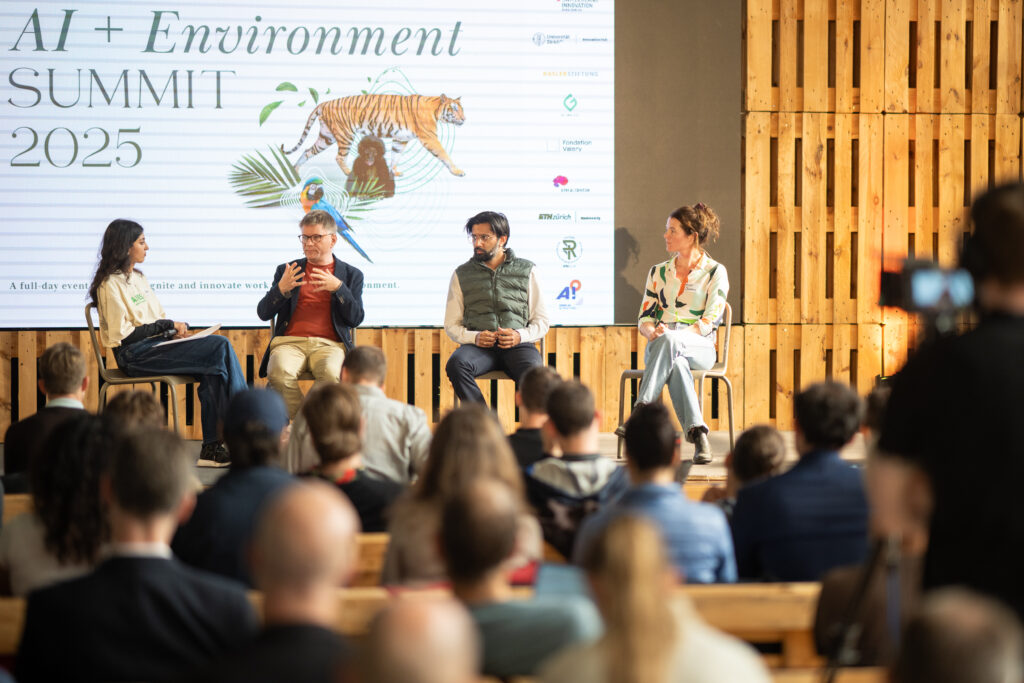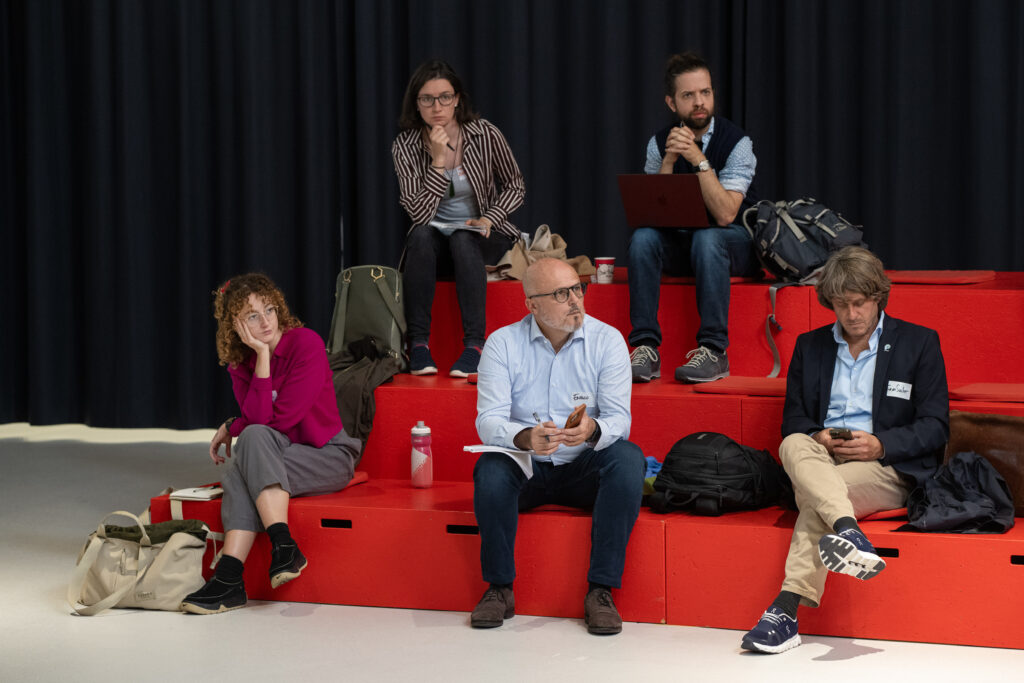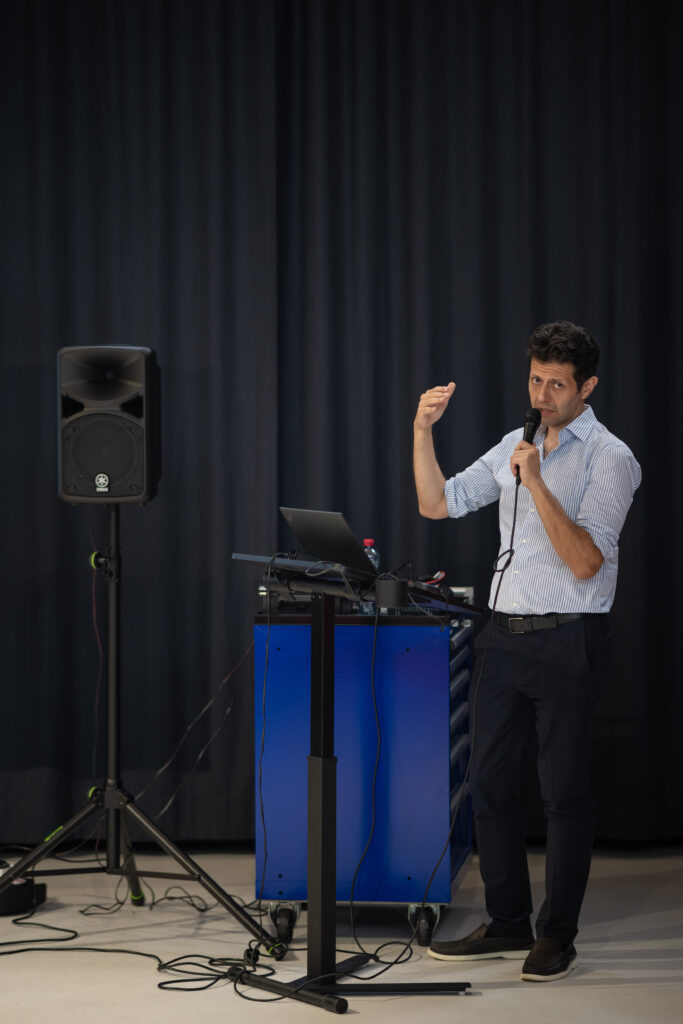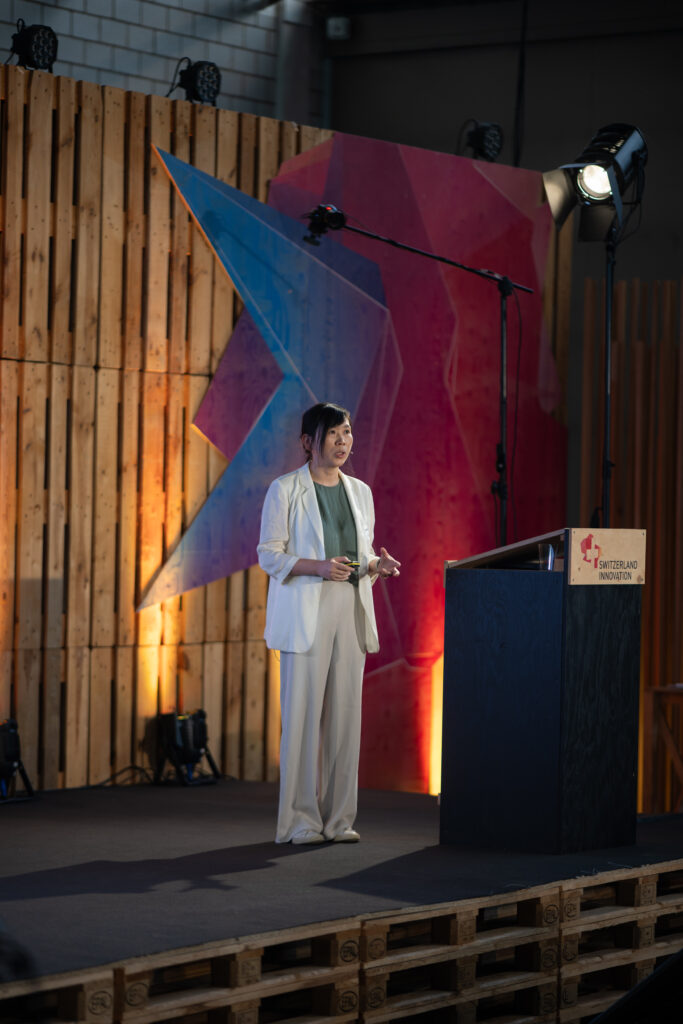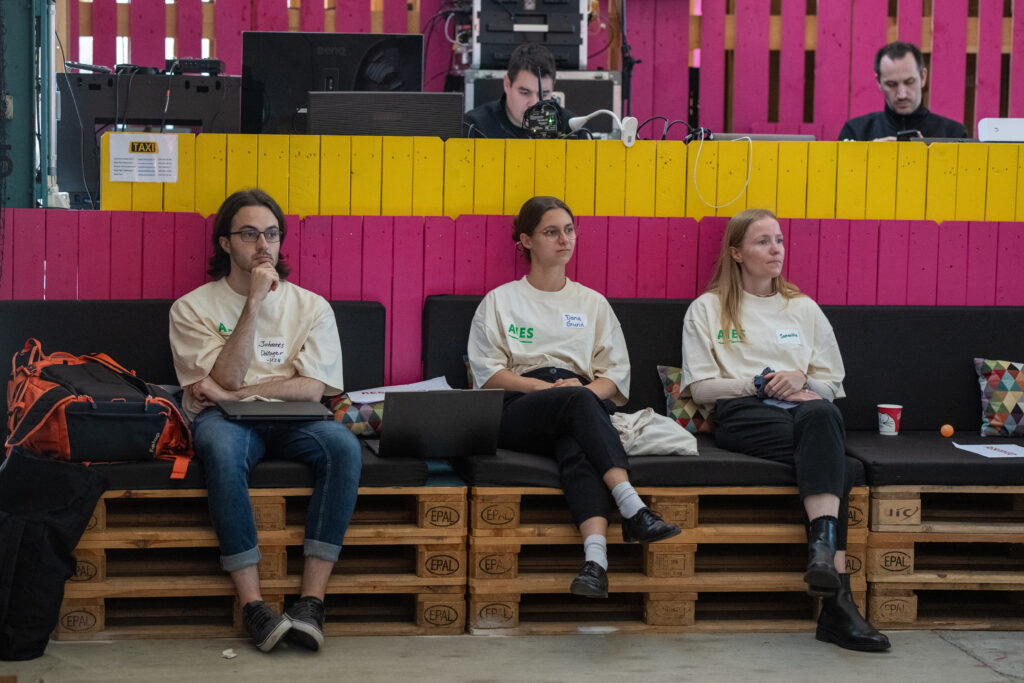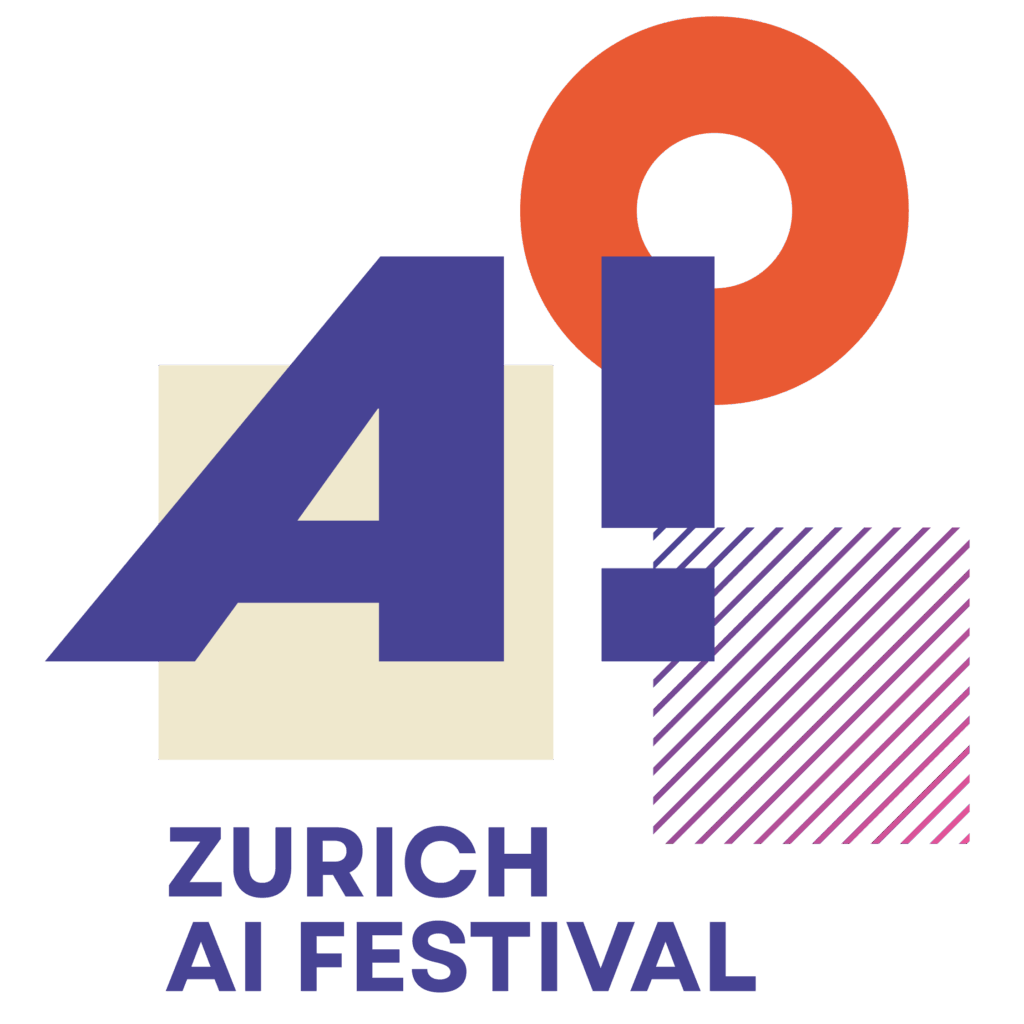AI + Environment Summit
Wed. October 1st, 2025
A full-day summit to inspire, ignite and innovate work in AI for the environment
The AI + Environment Summit brings together researchers, industry leaders, and policymakers to explore how artificial intelligence can drive positive environmental change. From cutting-edge research to real-world applications, the summit offers inspiring talks, panel discussions, and networking opportunities. Don’t miss the chance to be part of the conversation shaping the future of AI for a sustainable planet!
17
Speakers
3
Workshops
61
Posters
200+
In-person participants
Main stage Speakers
Attend inspirational talks by experts from academia and industry to get the pulse of AI for the environment in today’s world.
Prof. Dr. Sara Beery
Massachusetts Institute of Technology (MIT), USA
Prof. Dr. Devis Tuia
EPFL, Switzerland
Dr. Mikolaj Czerkawski
Co-founder Asterisk Labs, UK
Prof. Dr. Xiaoxiang Zhu
Technical University of Munich, Germany
Event Schedule
8:45
Arrival & Welcome coffee
9:15
Introduction by the Organizing Committee
9:30
Keynote lecture by Prof. Dr. Sara Beery (recording)
10:15
Keynote lecture by Prof. Dr. Devis Tuia (recording)
11:00
Break
11:15
Panel discussion: Dr. Michael Antony (recording), Prof. Dr. Millie Chapman (recording), Dr. S. Karthik Mukkavilli, panel recording
12:00
Lunch
13:15
Parallel sessions
14:45
Coffee break and poster session #1
15:30
Keynote lecture by Dr. Mikolaj Czerkawski (recording)
16:15
Keynote lecture by Prof. Dr. Xiaoxiang Zhu (recording)
17:00
Aperitif and poster session #2
Keynote presentations
Prof. Dr. Sara Beery is an Assistant Professor at MIT EECS’ Faculty of AI and Decision Making and CSAIL (Computer Science and Artificial Intelligence Laboratory). Previously a visiting researcher at Google working on Auto Arborist, she combines a deep love of the natural world with cutting-edge technology to tackle conservation and sustainability challenges. Her research develops computer vision methods for global-scale environmental and biodiversity monitoring, addressing complex real-world issues like domain shifts, imperfect data, fine-grained categories, and long-tailed distributions.
Prof. Beery will deliver a keynote lecture on « AI & Biodiversity« .
In a world overflowing with digital data—often unstructured and underused—Prof. Dr. Devis Tuia explores how machine learning can turn satellite, drone, and ground-based sensor data into actionable environmental insights. From mapping ecosystems to monitoring human impacts, his research bridges AI and geoscience to address the climate and biodiversity crises. Prof. Tuia will deliver a keynote lecture on “Machine Learning for Earth: Monitoring the Pulse of Our Planet with Sensor Data, from Your Phone All the Way to Space”
Prof. Tuia completed his PhD at University of Lausanne, Switzerland, where he studied kernel methods for hyperspectral satellite data. He then traveled the world as a postdoc, first at University of València, then at CU Boulder and finally back to EPFL. In 2014, he became assistant professor at University of Zurich, and in 2017 he moved to Wageningen University in the Netherlands, where he was chair of the Geo-Information Science and Remote Sensing Laboratory. Since September 2020, he is back at EPFL, where he leads the Environmental Computational Science and Earth Observation laboratory (ECEO) in Sion. There, he studies the Earth from above with machine learning and computer vision.
Dr. Mikolaj Czerkawski is a researcher specialising in AI, computer vision, signal processing and Earth observation. Before joining Asterisk Labs he was a postdoctoral research fellow at the European Space Agency. His research interests include data-centric analyses of large-scale Earth observation data, dataset curation, generative modelling, and restoration tasks for satellite imagery. He is a co-founder of the Major TOM community project, a platform for collaborating and reusing Earth observation datasets designed specifically for AI pipelines. He received the B.Eng. degree in electronic and electrical engineering in 2019 from the University of Strathclyde in Glasgow, United Kingdom, and the Ph.D. degree in 2023 at the same institution, specialising in applications of computer vision to Earth observation data.
Prof. Dr. Xiaoxiang Zhu is Chair Professor for Data Science in Earth Observation at TUM (Technical University of Munich, Germany). She directs the national ML4Earth center, the AI4EO international lab, and is a Director at the Munich Data Science Institute. Her research focuses on artificial intelligence and data science in Earth observation. She develops innovative signal processing and machine learning methods, and big data analytics solutions to extract highly accurate large-scale geo-information from big Earth observation data. Her team aims at tackling societal grand challenges, e.g. Global Urbanization, UN’s SDGs and Climate Change, thus, works on solutions that can scale up for global applications.
Professor Zhu will give a keynote lecture on « AI4EO for Social Good ».

Prof. Dr. Sara Beery
Assistant Professor at MIT, USA
AI & Biodiversity

Prof. Dr. Devis Tuia
Associate Professor at EPFL, Switzerland
Machine learning for Earth

Dr. Mikolaj Czerkawski
Co-founder Asterisk Labs, UK
On the Evolutions of the EO Spheres

Prof. Dr. Xiaoxiang Zhu
Professor at TUM, Germnay
AI4EO for Social Good
Panel discussion: AI to Impact
Prof. Dr. Millie Chapman is an assistant professor of Environmental Policy at ETH Zurich since July 2025. Her group works at the intersection of decision science, ecology, and data justice, critically exploring how computational tools can help us devise strategies to meet biodiversity and climate targets. Prior to joining ETH, Millie was a research fellow at the National Center for Ecological Analysis and Synthesis (NCEAS), a visiting faculty researcher at Google Research, and a core team member at Climate Change AI (CCAI). Millie received her PhD from the University of California Berkeley in 2023.
During the panel discussion, Prof. Chapman will ask “Can AI help inform just environmental futures?”
Dr. Michael Anthony is a co-founder and executive director of Vertify.Earth. For the panel, Michael Anthony will discuss « Tools to support nature-positive interventions in fragile and climate-sensitive geographies« .
Prof. Dr. Karthik Mukkavilli is Group Head of AI & Principal Scientist at Mercuria, a global energy commodity trading firm with significant investments in net-zero energy transition and biodiversity. He is also an Adjunct Professor at Korea Advanced Institute of Science and Technology (KAIST) building a new AI for complex systems research group. Previously at IBM Research he worked on generative AI and foundation models integrated into watsonx Granite for Earth science applications across language, vision and physical simulation modalities which received IBM’s outstanding accomplishment and NASA’s agency award. He coauthored papers in Nature Machine Intelligence, Nature Reviews Bioengineering, Earth’s Future, and popular works cited (1700+ times) like Tackling Climate Change with ML in ACM Computing surveys and Drawdown, an NY Times Bestseller. He was a Postdoc with Turing Laureate Prof. Yoshua Bengio at Mila.
In this panel presentation, he will cover two dimensions of AI’s role in addressing complexity. First, he will highlight recent advancements in AI for complex systems, drawing on applications in Earth sciences and systems biology where multimodal data, network models, foundation models, reinforcement learning, and generative AI are reshaping how we understand processes across scales. Second, he will turn to applied challenges in energy trading and biodiversity assessments, where AI must operate under conditions of noisy data, sparse information, and dynamic environments. These examples underscore both the transformative potential of AI and the obstacles that remain for its responsible and safe deployment. Ultimately, whether forecasting climate extremes, modeling vasculature, trading energy, or assessing biodiversity, the unifying challenge is the same: harnessing AI to navigate complex systems for meaningful impact to stakeholders.

Prof. Dr. Millie Chapman
Assistant Professor at ETH Zurich
Can AI help inform just environmental futures?

Dr. Michael Anthony
Co-founder Vertify.Earth
Context and Caution in Environmental AI

Dr. S. Karthik Mukkavilli
Group Head of AI @ Mercuria Energy Trading
AI for complex systems science: advancements, challenges, and opportunities
The impact of AI on the environment and beyond
As artificial intelligence becomes an increasingly central tool in addressing environmental challenges—from climate modelling to biodiversity monitoring—it is vital to also examine the environmental cost of AI itself. This 90-minute session offers a critical counterbalance to solution-oriented narratives by focusing on the ecological footprint of AI systems and their broader systemic implications.
While the overall event highlights how AI can support sustainability goals, this session turns the lens inward: What are the hidden environmental costs of developing and deploying AI models? What trade-offs are involved in scaling up data-driven solutions? And how can we ensure that the tools we build to address environmental crises do not, in turn, exacerbate them?
The session will bring together experts across disciplines to explore:
Participants will leave with a deeper understanding of AI’s material realities—often overlooked in the race toward innovation—and will be invited to reflect on how environmental and technological agendas can be aligned more responsibly.

Prof. Dr. Daniel O’Neill
Professor at the University of Barcelona
Aligning AI Development with Environmental and Social Sustainability

Dr. Loic Lannelongue
Senior Research Associate at the University of Cambridge
Green Algorithms, Green DiSC and GREENER principles: making computational science more environmentally sustainable

Dr. Philipp Wiesner
Research Associate at TU Berlin
The carbon footprint of AI … and where it’s headed

Dr. Francesca Larosa
Marie Curie Postdoctoral fellow at KTH Royal Institute of Technology
Respecting planetary boundaries for universal AI
AI for Earth Observation
Our planet is enveloped by an ever-growing constellation of satellites, each contributing to a vast repository of data crucial for monitoring Earth’s dynamic systems. From observing sea surface temperatures to identifying forest fires and assessing water resources, these satellites offer an unparalleled, continuous stream of information. This rich, temporally consistent dataset is a cornerstone for the effective application of artificial intelligence (AI) technologies.
Join us for an enlightening mini-symposium that explores the transformative applications of AI in understanding Earth’s evolution. This session is designed to provide practical insights into key questions, such as:
The mini-symposium will include a series of scientific presentations, each followed by an interactive question-and-answer segment to foster engagement and discussion.
You can find the recordings of the presentations on Youtube at the following links: Prof. Dr. Marc Rußwurm’s talk, Prof. Dr. Irena Hajnsek’s talk, Dr. Jochem Braakhekke’s talk.

Prof. Dr. Marc Rußwurm
Assistant Professor at Wageningen University
Learning Environmental Embeddings by training AI to play Satellite GeoGuessr

Prof. Dr. Irena Hajnsek
Full Professor at ETH Zurich
How can AI help to improve Earth Observation application products?
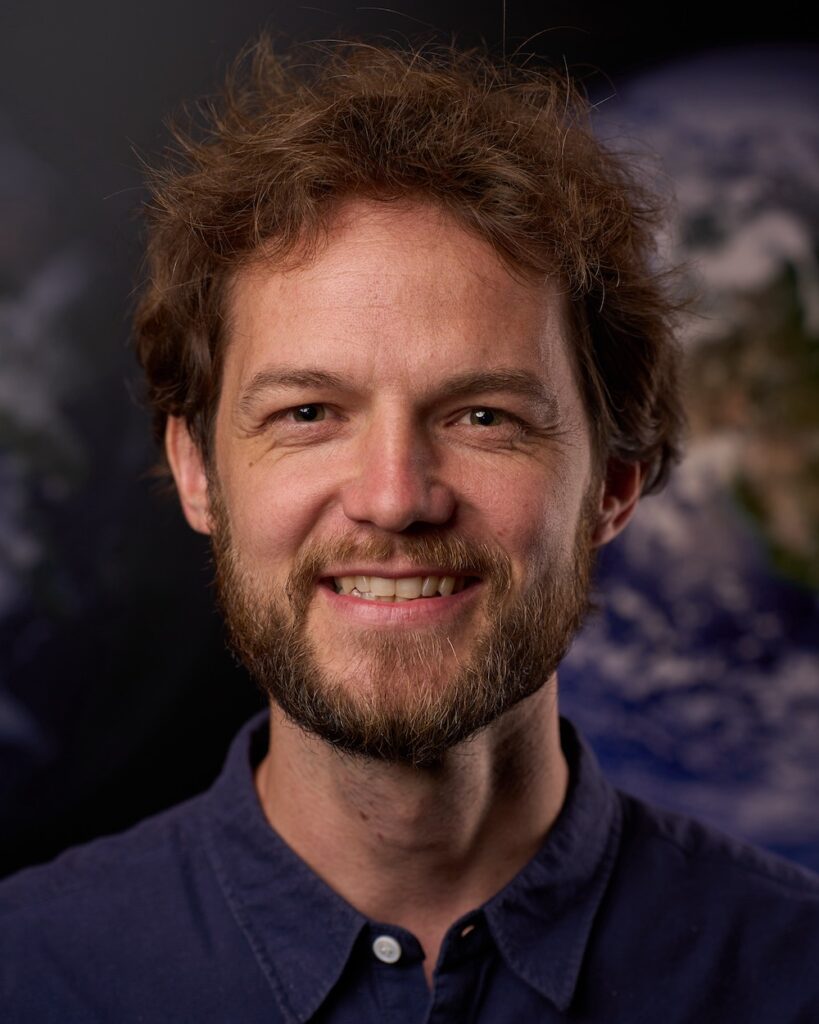
Dr. Jochem Braakhekke
Academic associate at the University of Zurich
Earth Observation data availability and accessibility
Natural Language Processing for climate change sciences
Climate change is a crisis in the real world. But it is also a big data challenge for businesses, governments and other stakeholders. Information about climate change is complex and qualitative – reflecting the fact that it is often embedded in scenarios, benchmarks or other forms of comparisons points. This vast amount of climate-related information is mostly captured in unstructured textual sources. The sheer mass of information makes it extremely hard to see through real action, detect greenwashing or determine effective practices.
Join us for the session on how Natural Language Processing (NLP) can help to address these challenges and function as a tool to analyze and structure vast amounts of data. The session builds on three pillars:
The session will comprise three presentations and a panel discussion with an open-question format with speakers from academia, industry and policy.
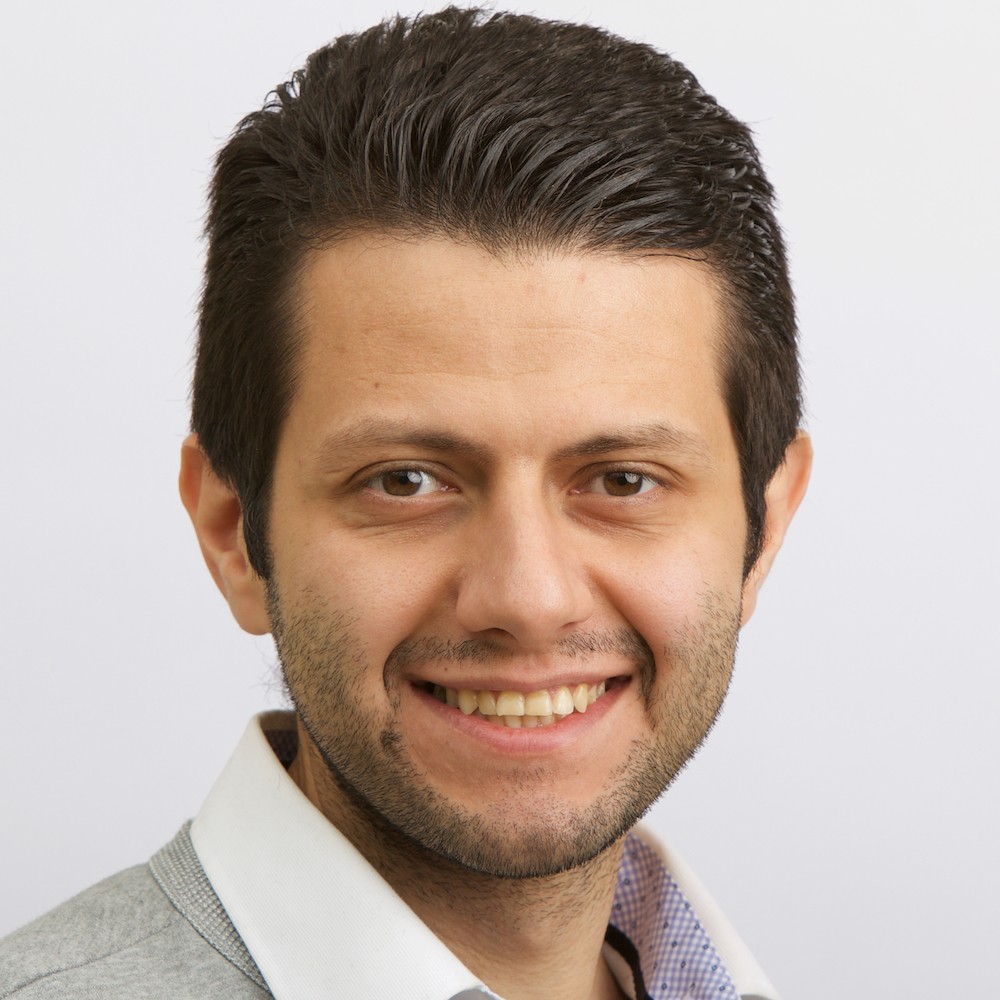
Dr. Ario Saeid Vaghefi
Academic Associate at the University of Zurich
Lleo: Large language earth observation

Théo Alves da Costa
Director of the « AI and Climate » division at Ekimetrics and President of the NGO Data For Good
Industrial AI for Environment: lessons from real-world deployment
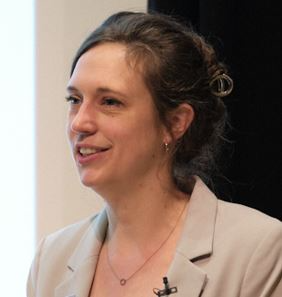
Dr. Julia Bingler
Research Associate in Financial Risk Data Analytics at the University of Oxford
Training NLP to extract qualitative information from corporate reports – experience from climate transition plan analysis
Virtual summit
We are committed to making our summit as accessible as possible. While we highly value in-person participation, we understand that attending virtually can be essential for some of our attendees. We are working hard to ensure that our virtual participants have a fulfilling and engaging experience
Keynote speakers
Tune in to listen to our esteemed keynote speakers and engage by submitting your written questions.
Virtual poster session
If your poster is selected, you will have the opportunity to present it in our dedicated virtual poster session. This session is designed specifically for our online audience and is separate from the in-person poster session.
Parallel session
Attend one of our insightful parallel sessions. Please note that virtual attendees will be assigned a session and will not be able to choose the specific session they attend.
Impressions from the 2025 summit
You can find recordings of most talks on Youtube! The links are available in the session descriptions above, next to the speakers’ name.
Also take a look at the 2024 edition!
Posters In-person
Posters Online
Registration
We are sold out! Please register on the waiting list and we will contact you if a spot frees up. You can also sign up for online attendance.
Registration
The 2025 summit is over. You can subscribe to our newsletter to be the first informed about the 2026 edition!
Venue — Innovation Park Zürich
Innovationspark Zürich
Wangenstrasse 68
8600 Duebendorf
If you are joining us in person, you can find a map of the venue below or download it here

Contact
If you would like to receive information about next year’s AI + Environment Summit 2026, you can register using the form below. Do not hesitate to contact us at contact@aiesummit.com for any question.
Organizers

Ghjulia Sialelli
PhD fellow at ETH AI Center

Samantha Biegel
PhD fellow at ETH AI Center

Sarah Tariq
Masters student at UZH

Emilia Arens
PhD Ecovision Lab at UZH
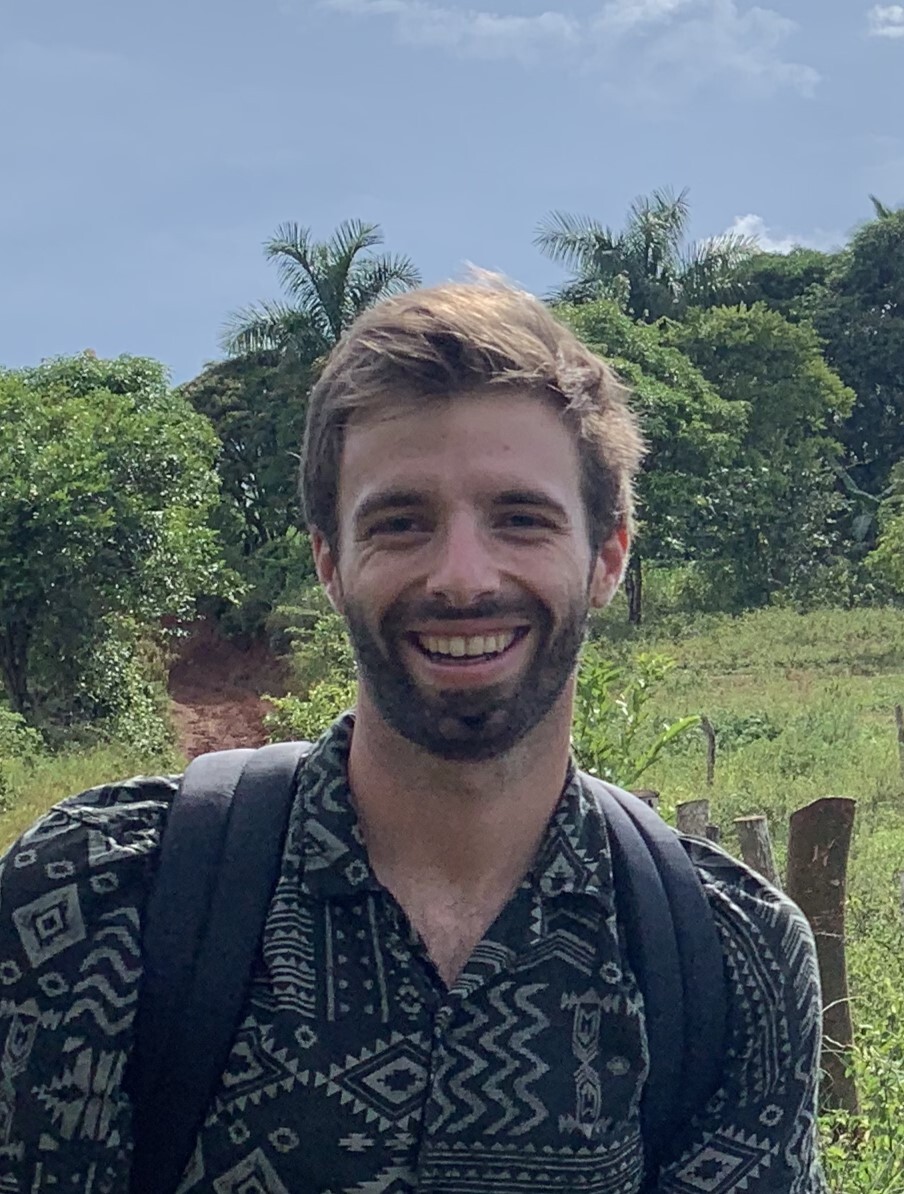
Robin Zbinden
PhD student at EPFL

Dr. Billur Bektaş
Postdoctoral Researcher at ETH Plant Ecology Group

Dr. Fanny Lehmann
Postdoctoral fellow at ETH AI Center

Johannes Dollinger
PhD Ecovision Lab at UZH
Advisory Board

Dr. David Dao
Chief Scientist at GainForest.Earth

Letizia Turri
Chief of Staff at ETH AI Center
Virtual summit

Protik Pranto
PhD Student, Computer Science, Arizona State University




